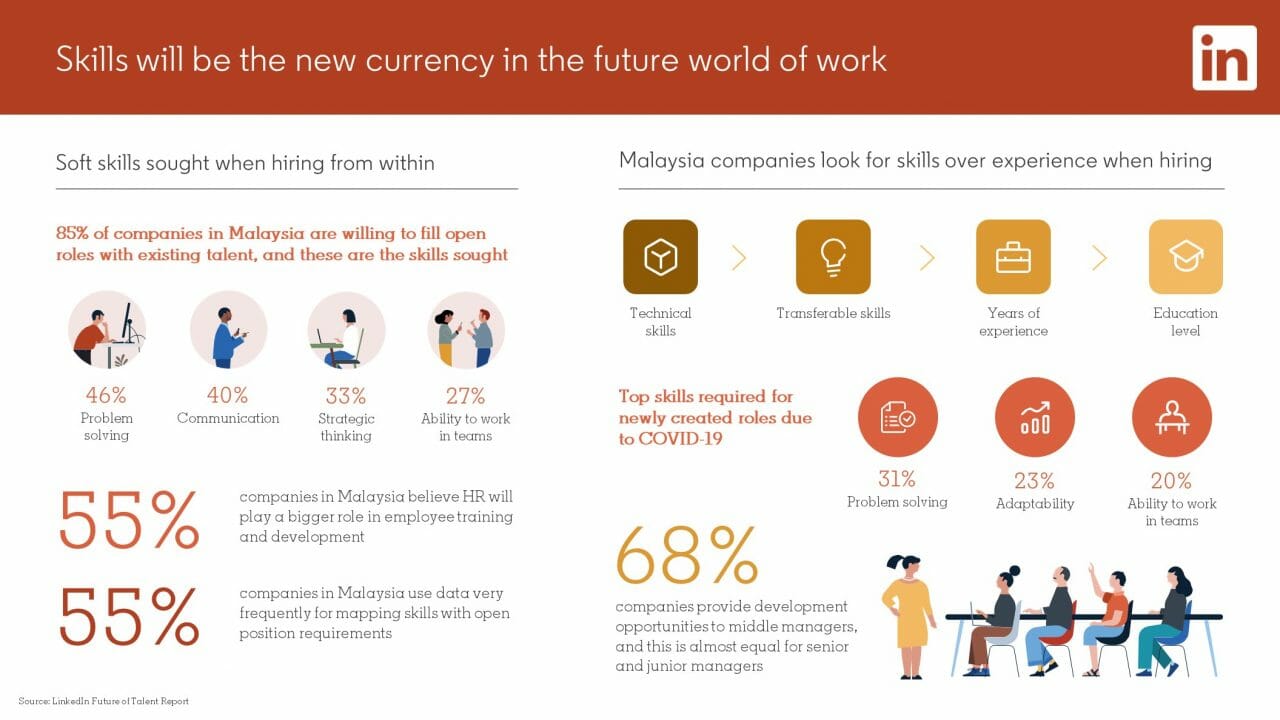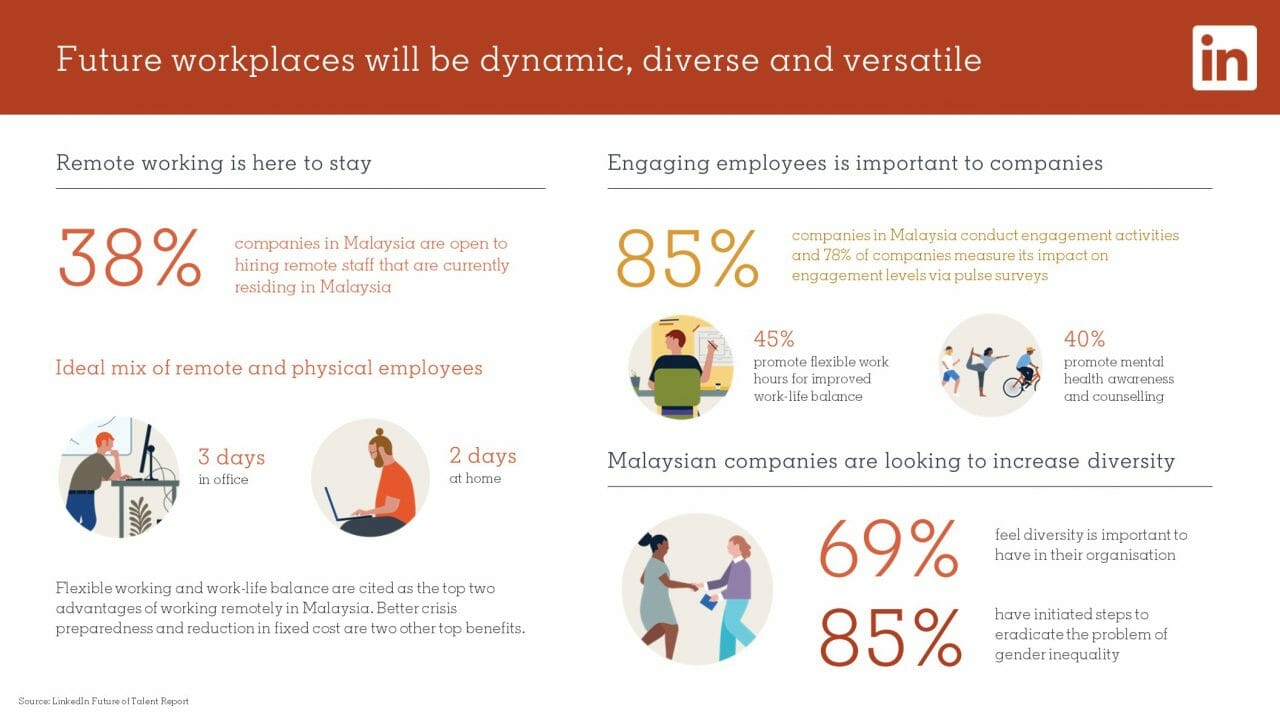According to LinkedIn’s Future Of Talent report, Malaysian companies are likely to hire candidates with skills, rather than qualification or experience. Skills will continue to pave the way for economic recovery and development and ultimately become the new currency for jobs and in the future workplace.
The finding discovered 38 percent of companies in Malaysia prefer to hire candidates with technical skills and transferable skills at 28 percent. This is prioritised over traditional qualifiers like education at 10 percent and minimum years of experience at 12 percent. In fact, 67 percent of companies are open to hiring employees from another industry if the skills they possess match the job requirements.
Additionally, the report found businesses are becoming more receptive to using internal talent to fill open positions. 85 percent of companies in Malaysia are willing to hire internally. 72 percent said they can leverage existing employees’ insider’s perspective, 65 percent believe hiring internally can provide a sense of progress, whereas 56 percent said it can encourage loyalty.
However, companies must provide training programmes to assist workers in acquiring the necessary skills. There are three soft skills in particular when it comes to hiring internally, namely, problem-solving skill, communication skills, and strategic thinking. Among these three, problem-solving skills stood out as one of the in-demand skill sets as compared to other markets in APAC.
Feon Ang, Vice President, Talent and Learning Solutions, APAC, LinkedIn, said “New roles have been created and existing ones have evolved. Hiring talent with the right skills set for these roles is very important to organisations, and these days, it matters less that the talent has the traditional qualifications or industry experience.”
“Going forward, we can expect to see a skills-based economy take shape, with skills becoming the new currency for workers in the future world of work. I encourage all individuals to adopt a growth mindset and keep learning to stay relevant,” she said.
Almost nine in 10 companies in Malaysia understand the importance of using data-driven insights in their hiring decisions. In fact, 55 percent of Malaysian companies lead the region in using data potently to matching skills with open position requirements.
Data insights are namely used to identify skills needed in the future while top technical skills required for a particular role or profile and measuring employee performance.
Data can also help companies design effective employee engagement activities. 30 percent of companies in Malaysia experienced higher employee attrition due to Covid-19 where 42 percent of Malaysians have left an organisation for a career change.
Additionally, companies must double down on employee engagement efforts to help employees stay inspired and connected. According to the report, flexible working plans is the most effective activity in boosting engagement level and this is especially important with hybrid and remote work here to stay.
Furthermore, on average, companies in Malaysia aim for a mix of 41 percent of remote employees and 59 percent of physical employees with hybrid and remote work is here to stay.
“With skills being an engine of growth now and into the future, it is critical that HR and business leaders are equipped with advanced tools like data analytics. These tools can help them to identify both potential candidates who have those set of skills and internal hires who can be reskilled,” Ang said.
The report also saw an expansion of HR roles and responsibilities during Covid-19. In Malaysia, 55 percent of companies said HR played an important role in employee training and development and 57 percent cited employee engagement as another important area of HR’s role.
Prior to Covid-19, HR played a significant role in shaping business strategies in 54 percent of Malaysian companies. However the number was elevated further in 68 percent of organisations as many companies recognised the importance of having the right talent in reshaping business strategy after Covid-19.











